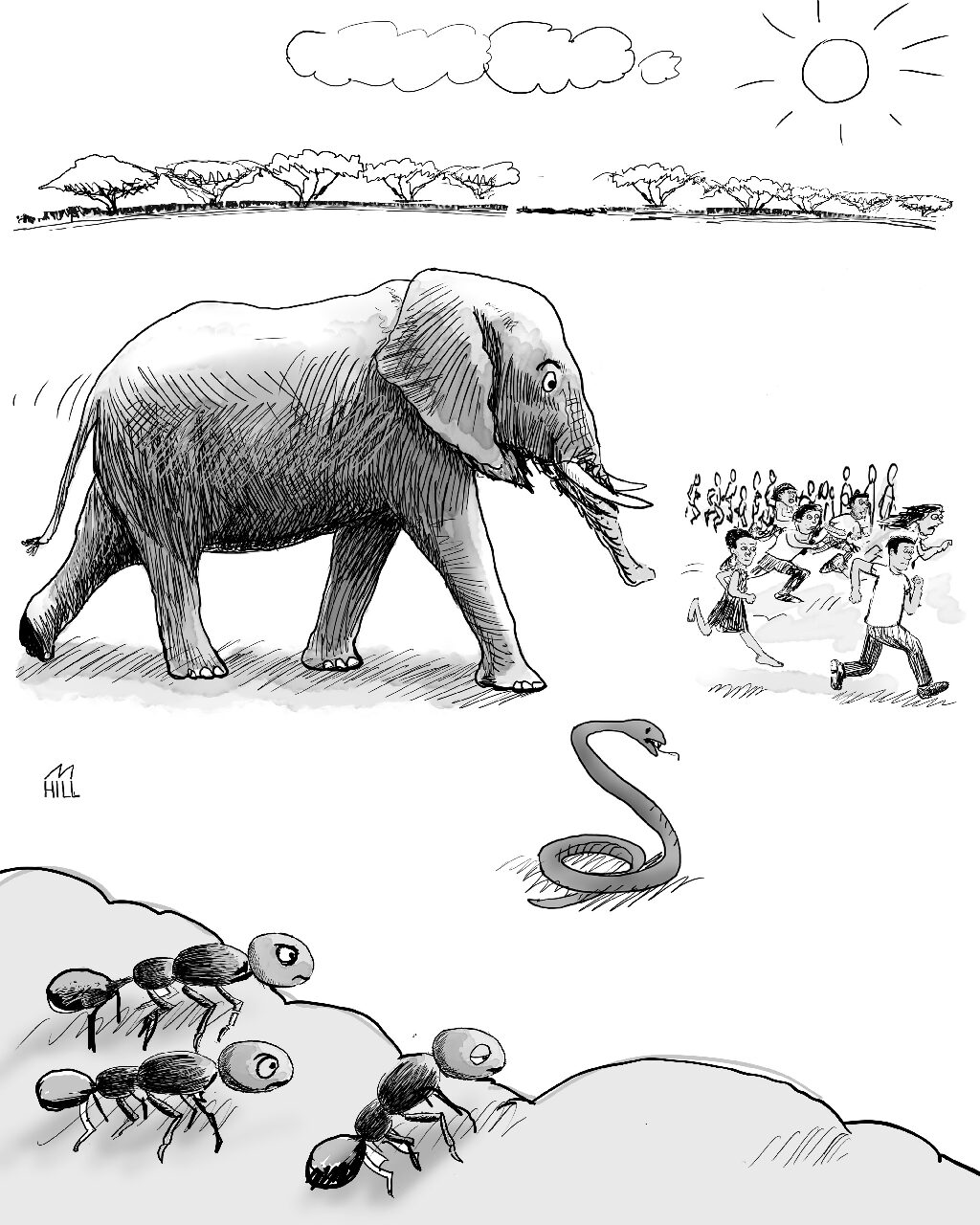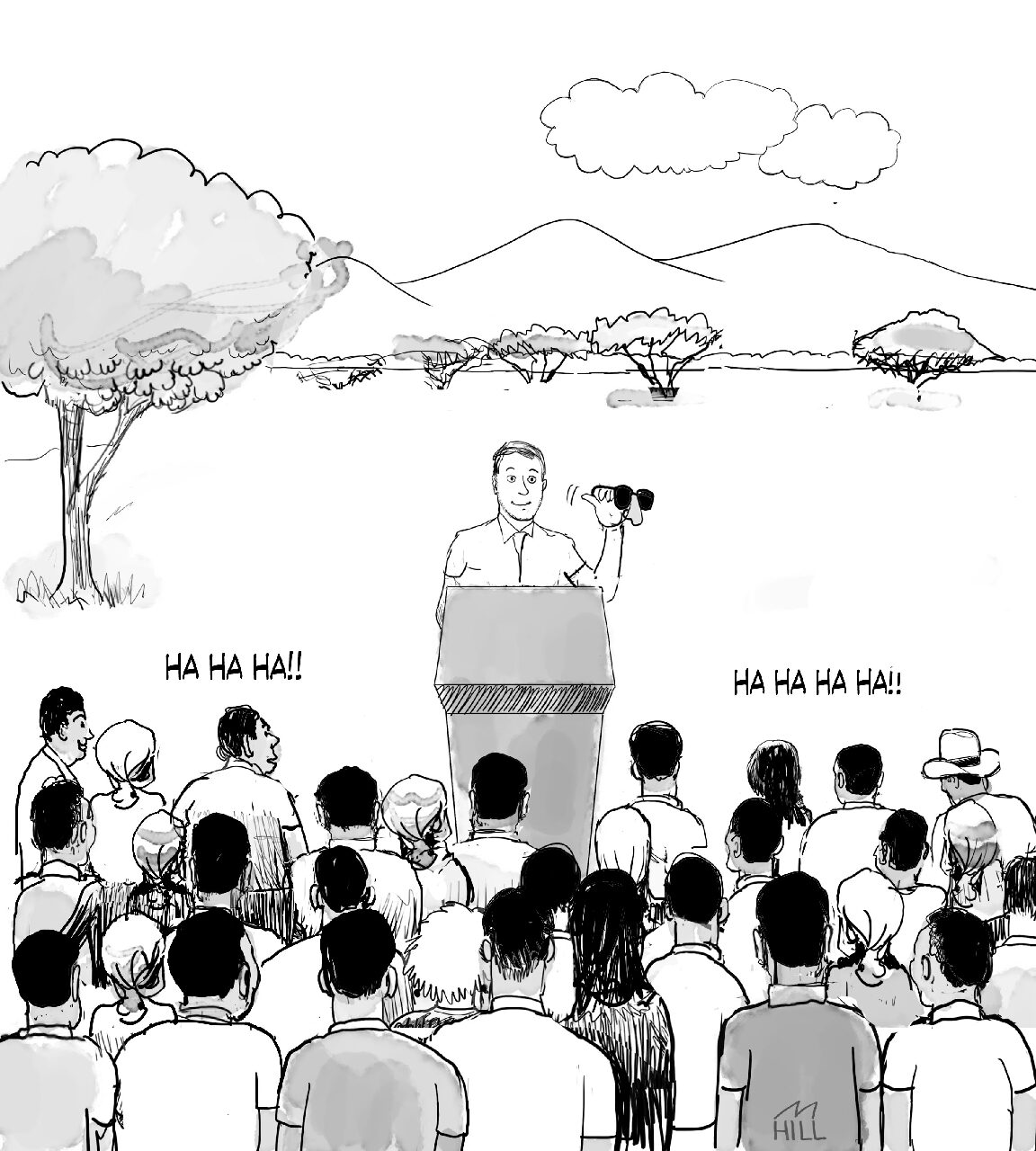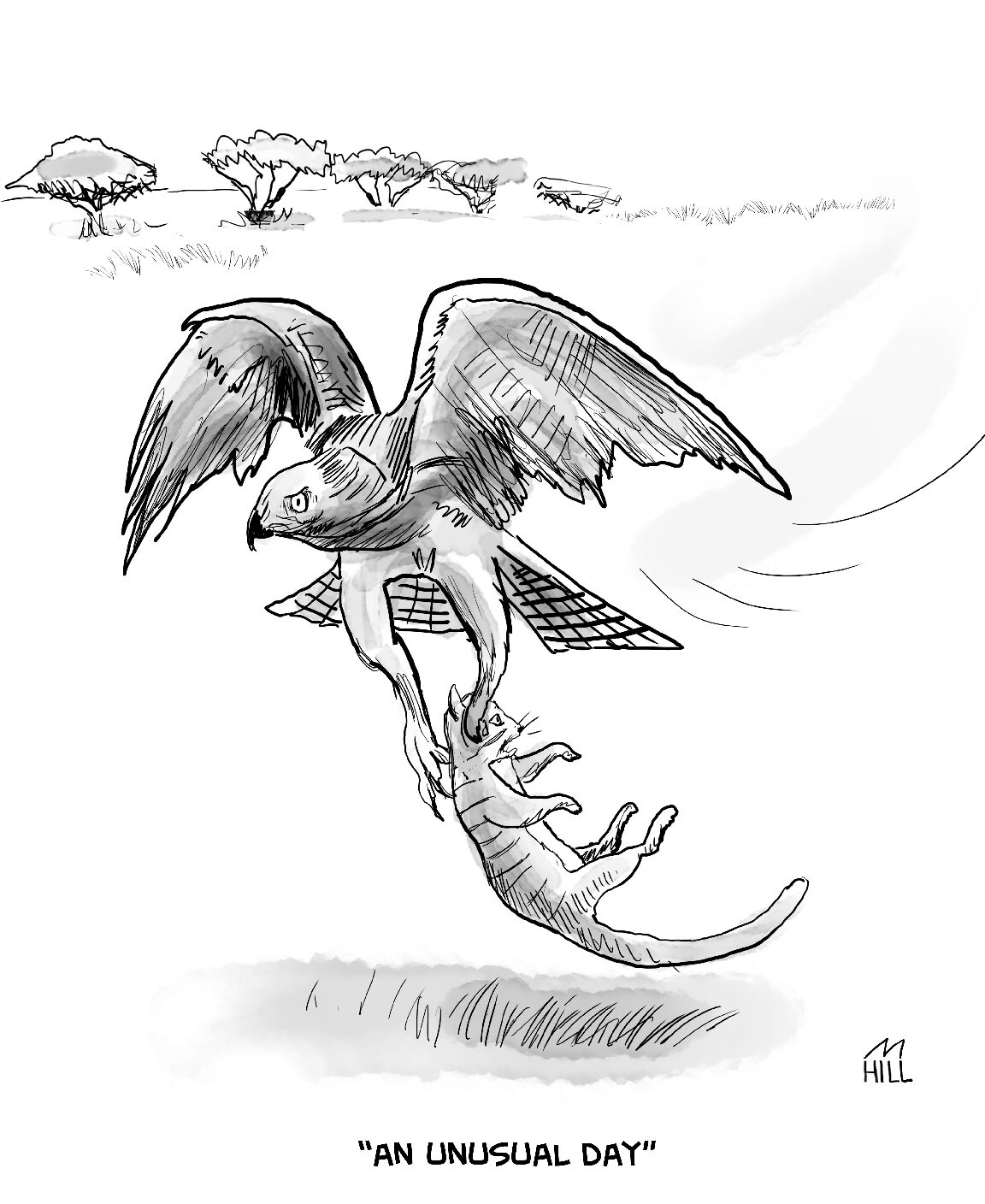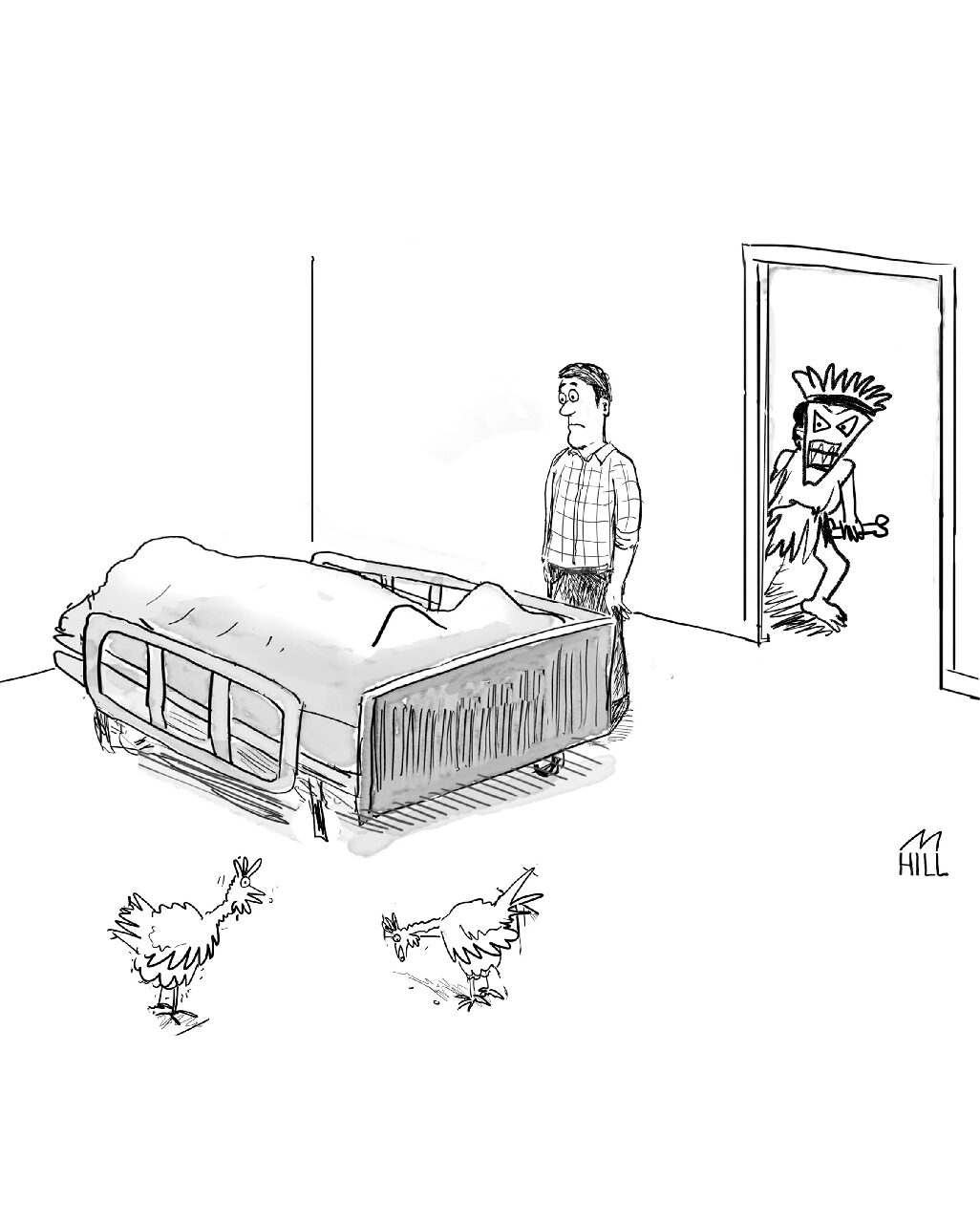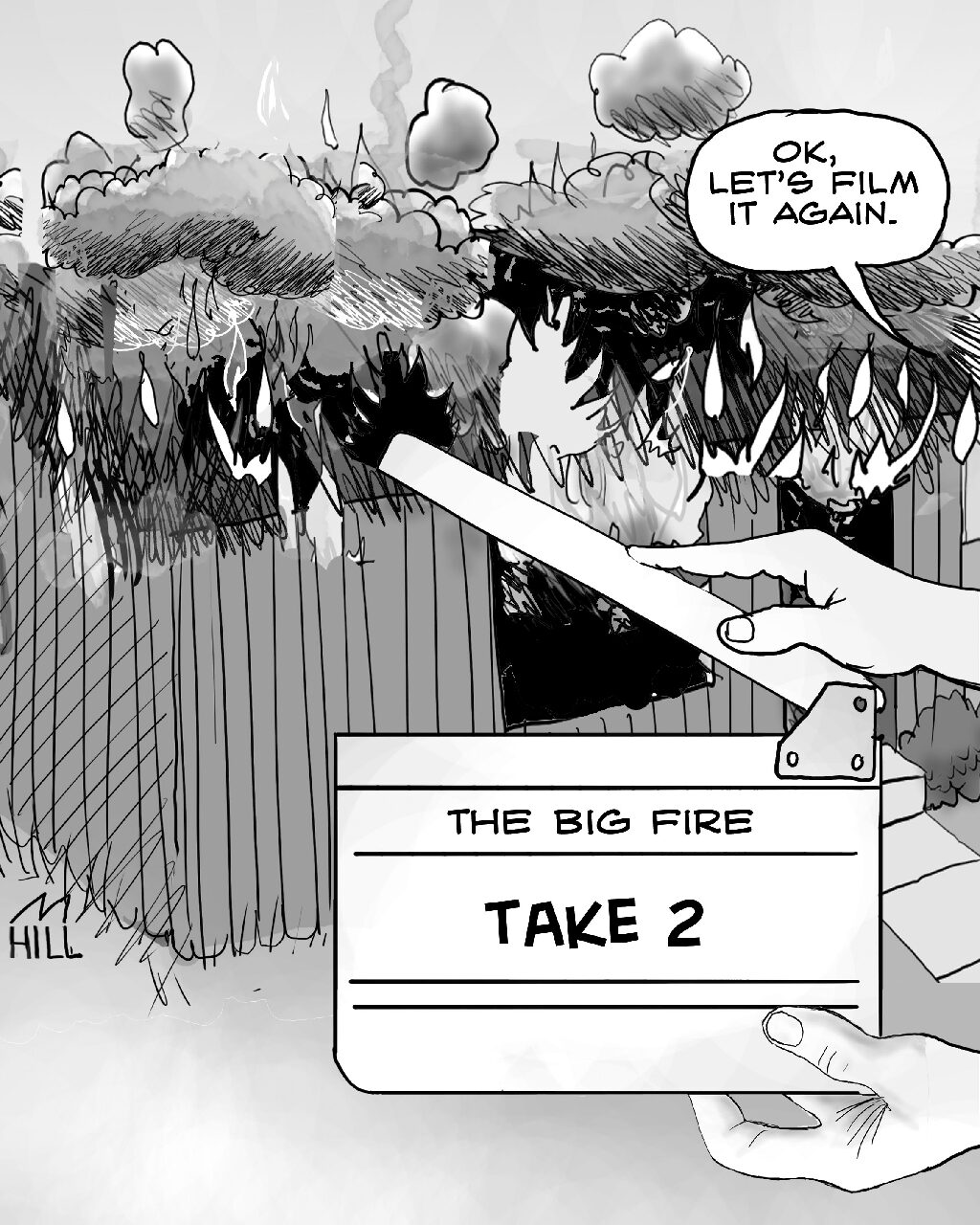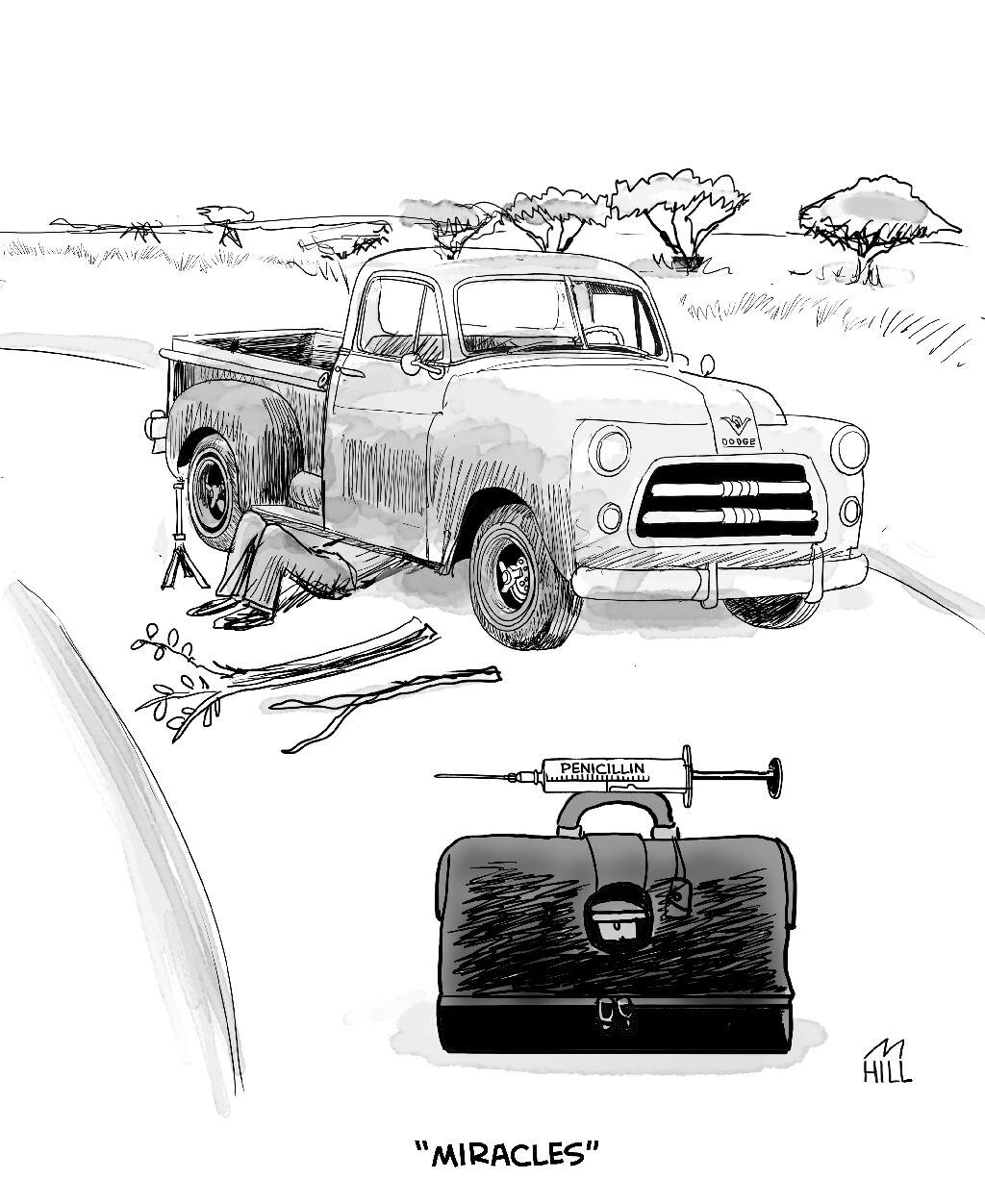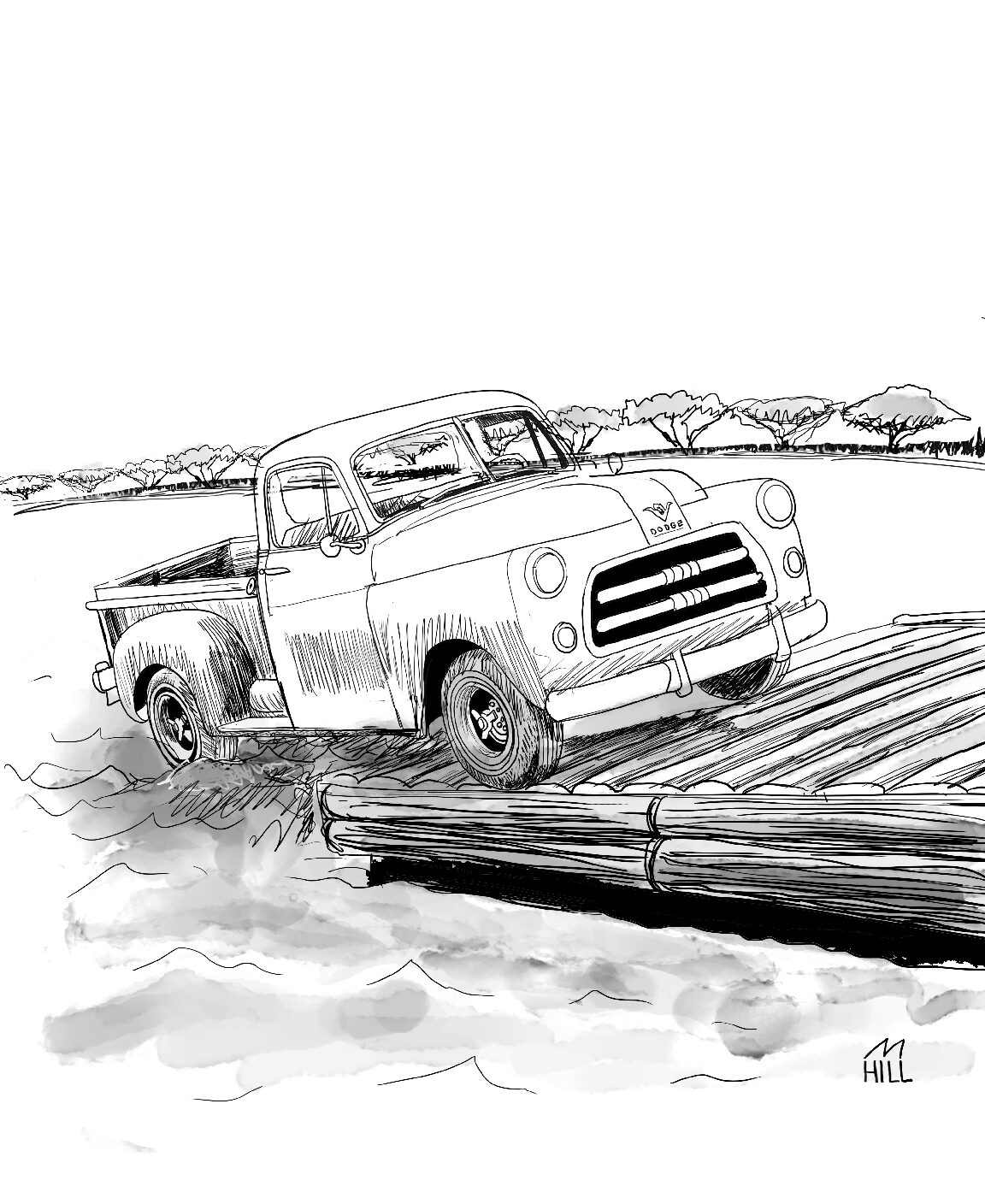“Wild Things”
Many creatures seem to come alive and become very active during the night. Such is the case with Army ants of the Congo, as, at sundown they leave their hill to search for food. One colony numbering tens of thousands march in a column, about six abreast, keeping rank until some edible object is found. Then all the ants break rank and swarm over the object in question. If it is alive, for example, a chicken, they bite fiercely and the victim dies from thousands of bites. In the morning only bare bones remain. They have been picked perfectly clean.
One night while we were sleeping, unknown to us, a column of army ants entered our home through a crack under the outside door and marched into our son’s room. He was then about seven months old. We were awakened by his screams and rushed in to find him covered with ants.They began to swarm over us as well, but we quickly escaped with him outside and removed all the offenders from him and ourselves. The rest of the night was spent in a neighbouring house. When we returned to our home in the morning, there was no sign of an ant. Strangely, too,because they ate every crumb, every insect etc they found, they actually left the house cleaner than they had found it!
Snakes were a constant problem and victims of snakes were frequently seen at the hospital. One night I was coming home after dark, driving along a one-track road, when I noticed what looked like a swollen fire hose across the road. I rolled over it- bump, bump.I The African who was with me exclaimed that we had just gone over a snake! He was right! When I backed up there was no sign of the “fire hose”. I had never seen its head or tail but it was probably a python.
From time to time crush injuries of the chest were brought into the hospital. They were generally caused by boa constrictors dropping from trees onto their victims. If a friend was happily nearby with a machete, he could come to the rescue, with luck before the victim had been crushed or suffocated to death.
Large pythons were known to have swallowed babies in one gulp. On one occasion I saw a huge python who was unable to escape because he had swallowed a whole goat. This great lump destroyed its normal undulating pattern of movement and made it very sluggish.
I was working in an area where there were many pygmies. Though very friendly, they preferred to stay isolated in their jungle communities and were loath to come for medical treatment, but trauma did bring them to the hospital. They were great tree -climbers, gathering birds ’eggs and wild honey. Sometimes, however, they would lose their footing and come crashing to the ground.
On one occasion, a whole group would gather to go elephant hunting. They had no fire-arms so they subjected the poor elephant to a long and lingering death over a period of two to three days. They began by chasing the elephant in order to tire it. They at the same time would fire arrows and spears into it. Finally after hours or days of the treatment the elephant would lie down for a rest, totally exhausted. The pygmies would then slip vine ropes around the back legs and tie the elephant to nearby trees. The elephant might break away a few times but finally it would be held. Then the finishing blows would be dealt with large spears ripping into his belly. Needless to say , all these manoeuvres were rather dangerous and I treated more than one pygmy that had been trampled or gored by the elephant. But then, every occupation has its hazards!
All in all, I found medical practice in Africa a continual fascination. Certainly, one never knew what might be coming next!

